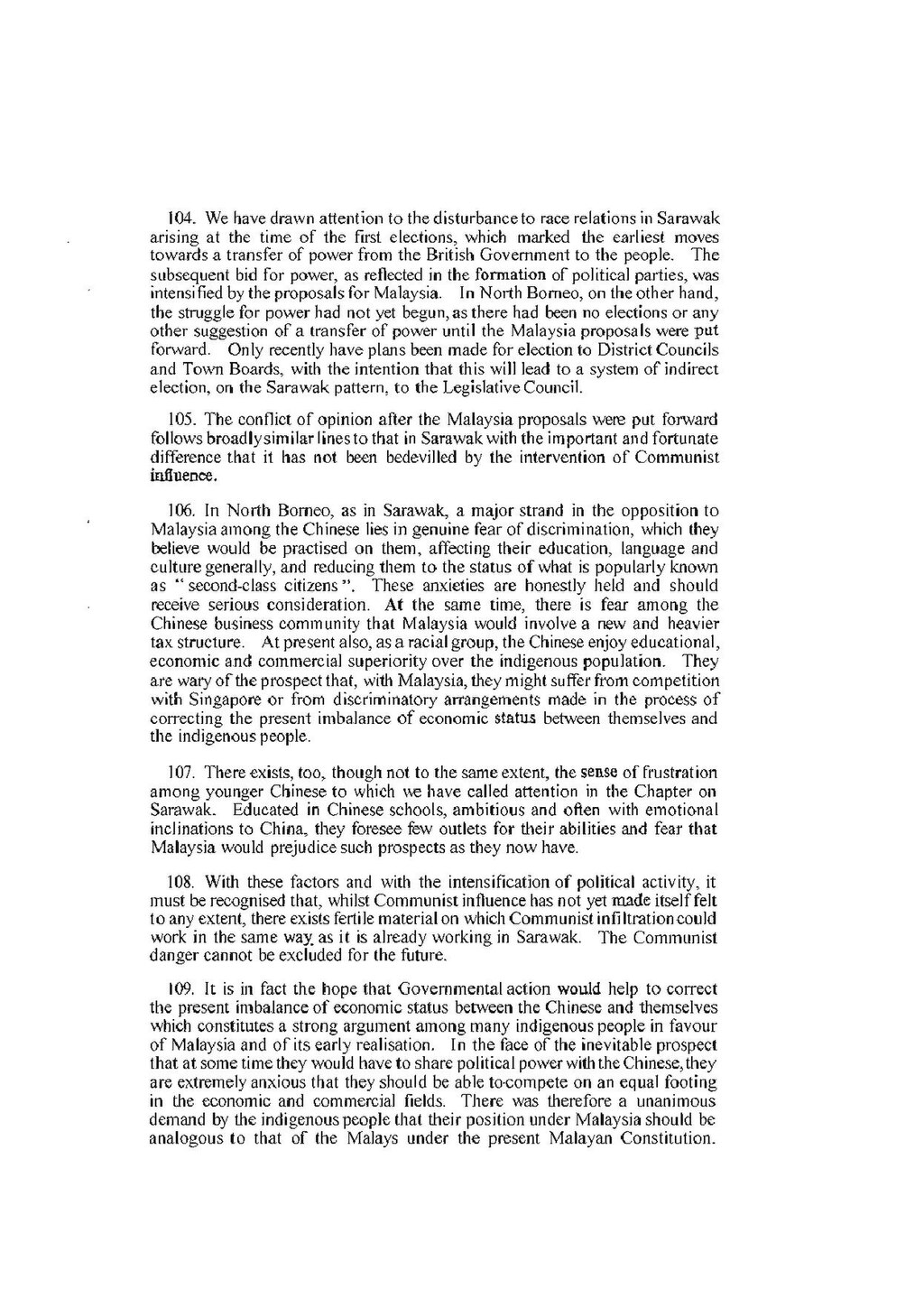104. We have drawn attention to the disturbance to race relations in Sarawak arising at the time of the first elections, which marked the earliest moves towards a transfer of power from the British Government to the people. The subsequent bid for power, as reflected in the formation of political parties, was intensified by the proposals for Malaysia. In North Borneo, on the other hand, the struggle for power had not yet begun, as there had been no elections or any other suggestion of a transfer of power until the Malaysia proposals were put forward. Only recently have plans been made for election to District Councils and Town Boards, with the intention that this will lead to a system of indirect election, on the Sarawak pattern, to the Legislative Council.
105. The conflict of opinion after the Malaysia proposals were put forward follows broadly similar lines to that in Sarawak with the important and fortunate difference that it has not been bedevilled by the intervention of Communist influence.
106. In North Borneo, as in Sarawak, a major strand in the opposition to Malaysia among the Chinese lies in genuine fear of discrimination, which they believe would be practised on them, affecting their education, language and culture generally, and reducing them to the status of what is popularly known as "second-class citizens". These anxieties are honestly held and should receive serious consideration. At the same time, there is fear among the Chinese business community that Malaysia would involve a new and heavier tax structure. At present also, as a racial group, the Chinese enjoy educational, economic and commercial superiority over the indigenous population. They are wary of the prospect that, with Malaysia, they might suffer from competition with Singapore or from discriminatory arrangements made in the process of correcting the present imbalance of economic status between themselves and the indigenous people.
107. There exists, too, though not to the same extent, the sense of frustration among younger Chinese to which we have called attention in the Chapter on Sarawak. Educated in Chinese schools, ambitious and often with emotional inclinations to China, they foresee few outlets for their abilities and fear that Malaysia would prejudice such prospects as they now have.
108. With these factors and with the intensification of political activity, it must be recognised that, whilst Communist influence has not yet made itself felt to any extent, there exists fertile material on which Communist infiltration could work in the same way as it is already working in Sarawak. The Communist danger cannot be excluded for the future.
109. It is in fact the hope that Governmental action would help to correct the present imbalance of economic status between the Chinese and themselves which constitutes a strong argument among many indigenous people in favour of Malaysia and of its early realisation. In the face of the inevitable prospect that at some time they would have to share political power with the Chinese, they are extremely anxious that they should be able to compete on an equal footing in the economic and commercial fields. There was therefore a unanimous demand by the indigenous people that their position under Malaysia should be analogous to that of the Malays under the present Malayan Constitution.
